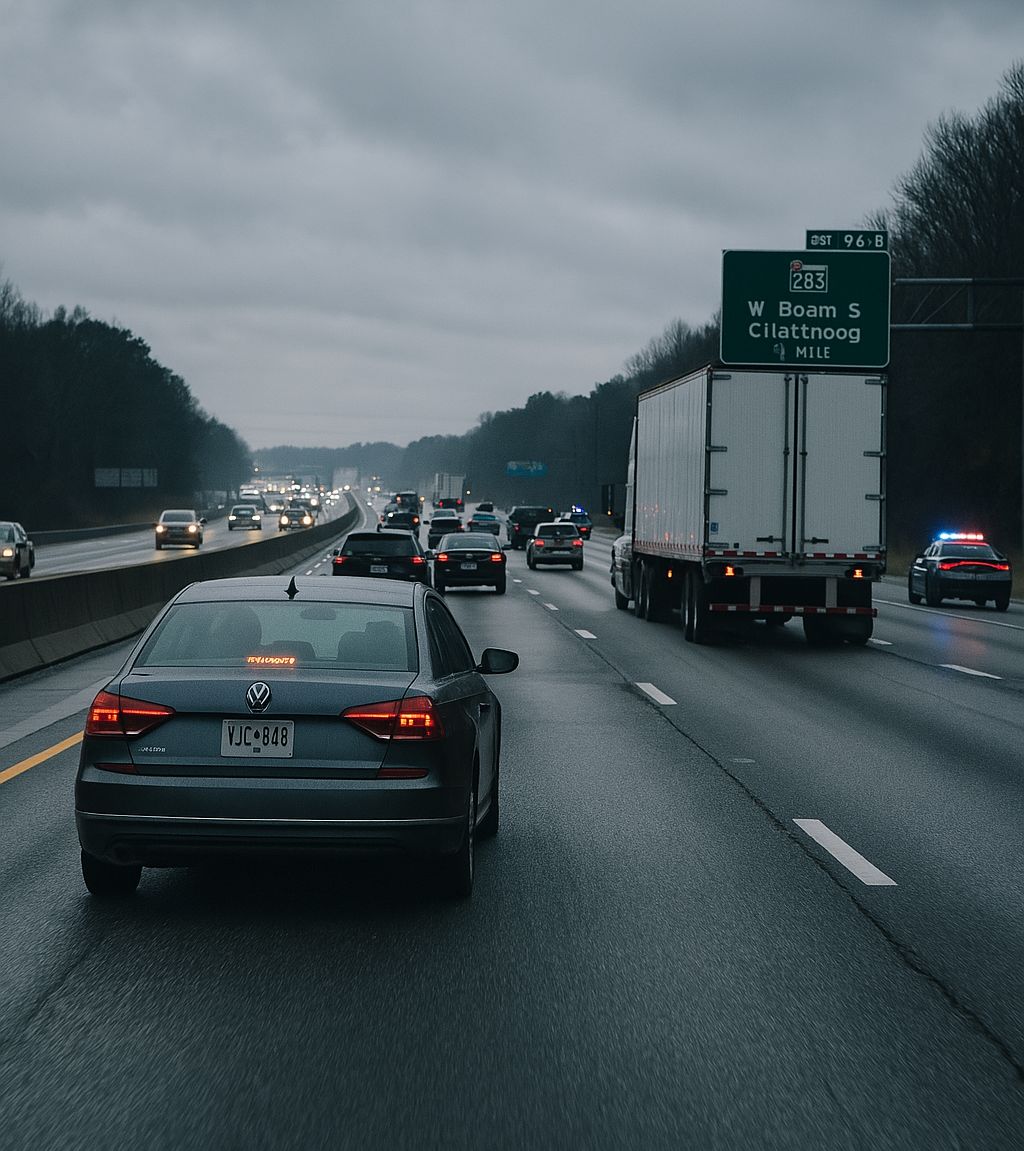There is a comfort in routine, until that routine is interrupted. Georgia’s interstates stretch wide and long, carrying commuters, freight, and out-of-state drivers every hour of the day. They are built for speed. For distance. But that same design can also make them unforgiving. One miscalculation, one missed signal, and everything changes. We have worked with people who did not see the crash coming, and with families trying to understand how something so normal became life-altering in seconds.
Why Are Interstates Among the Most Dangerous Roads?
Most highways seem safer at a glance. There are no traffic lights, no pedestrians, and everything flows in the same direction. But they carry risks of a different kind:
- Speeds that leave no time to react
- Tight spacing between cars and trucks
- Few places to safely pull off during an emergency
- Drivers from across the country, not all familiar with Georgia law
- Long stretches where even a moment of inattention can be costly
It only takes one mistake to affect five or six vehicles, and everyone in them.
How Speed Shifts the Entire Equation
Georgia’s interstate speed limits range from 55 to 70 mph, but we all know many drivers go faster, especially around Macon, on I-75 and I-16. At those speeds, the ability to stop quickly or adjust to a sudden hazard drops significantly. When a crash does happen, the impact is brutal.
Even the best safety features—airbags, electronic stability control, reinforced cabins—cannot always protect against the energy unleashed at 70+ mph. According to the Georgia Governor’s Office of Highway Safety, crashes involving speed are still among the top causes of fatal accidents statewide.

Distraction at 70 MPH Is Not the Same as at 30
Modern cars are filled with screens, alerts, and features meant to help, but they often do not. Add a smartphone to that mix, and a driver’s attention can be pulled away in an instant. At highway speed, a two-second glance at a text means you have missed the distance of a football field. You cannot get that space back.
Common distractions we have seen in real crash reports include:
- Sending or reading messages
- Changing music or directions
- Talking, even hands-free
- Eating behind the wheel
- Reaching for something that fell
Georgia’s Hands-Free Law makes it illegal to hold a phone while driving. Still, distraction remains one of the top contributors to highway crashes across the state.
Different Drivers, Different Habits—Same Road
Georgia’s interstates carry travelers from every region. Some grew up driving in snow. Others learned in cities with far denser traffic. Many drive for a living. But they all bring their own habits. What is normal in another state, like passing on the right or merging without signaling, can be risky or even illegal here.
This blend of driving styles can lead to sudden lane changes, inconsistent speeds, or hesitation at key moments. And when those differences cause a crash, resolving liability can get complicated fast, especially if one driver is out-of-state or operating a commercial vehicle.
It’s Almost Always Human Error
No matter the vehicle, road design, or weather, most serious highway accidents come down to someone’s actions or inaction. We see these again and again:
- Aggressive lane changes
- Tailgating
- Speeding through construction areas
- Driving under the influence
- Staying on the road while clearly too tired to continue
Most of these behaviors are legally classified as negligence. And if you were hurt because someone else chose to take that risk, Georgia law may allow you to hold them accountable.
What Can You Recover After a Crash?
If you are injured in a highway accident, you may be able to pursue compensation for:
- Emergency and long-term medical treatment
- Lost wages or loss of future earning ability
- Pain and suffering
- Property damage
- Mental health care or trauma
- Permanent disability or visible scarring
In some circumstances, when the other driver acted with extreme recklessness or was under the influence, the court may also award punitive damages, a financial penalty aimed at preventing similar behavior in the future.
Why Legal Help Makes a Difference
After a crash, insurance companies often respond fast. But they are not there to protect you. Their job is to pay as little as possible. A car accident lawyer in Macon GA can level the field by:
- Reconstructing the crash to determine fault
- Gathering statements, medical records, and expert evaluations
- Calculating the true value of what you have lost
- Negotiating firmly with insurers
- Filing a lawsuit if necessary
Without experienced legal help, you may not even know what you are entitled to, let alone how to prove it.
Georgia’s Two-Year Deadline
Under O.C.G.A. § 9-3-33, you have two years from the date of a highway crash to file a personal injury claim. That clock does not stop, and once it runs out, so do your legal options. Starting the process early means more time to build a strong case and fewer surprises along the way.
Talk to a Car Accident Lawyer in Macon GA Today
If you or someone in your family was hurt on a Georgia highway, you do not have to handle the legal aftermath alone. At Prine Law Group, we have stood beside crash victims across the state, helping them pursue real answers, fair compensation, and a clearer path forward.
Call 478-257-6333 or use our secure form to schedule a free consultation with an experienced car accident lawyer in Macon GA. We are ready when you are.





